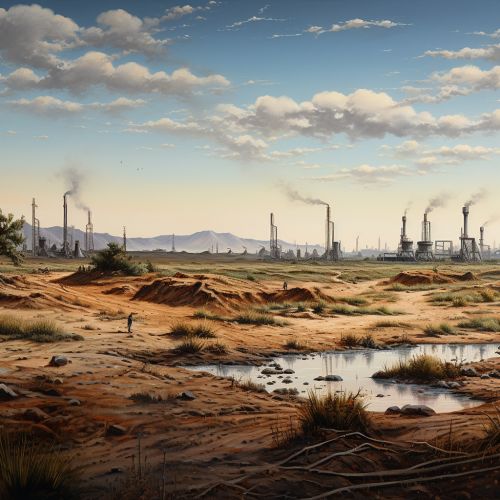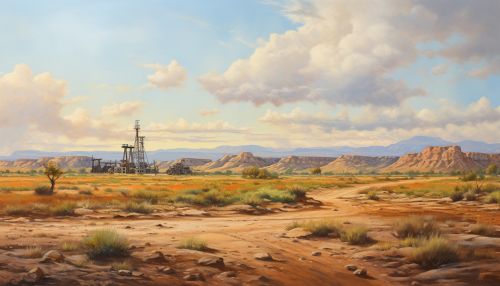Economy of Russia
Overview
The Economy of Russia is a mixed economy with state ownership in strategic areas of the economy. It is the 11th largest economy in the world by nominal GDP and the 6th largest by purchasing power parity (PPP). Russia's vast geography is an important determinant of its economic activity, with some sources estimating that Russia contains over 30 percent of the world's natural resources.
Economic History
The economy of Russia became heavily industrialized, accounting for about two-thirds of the electricity produced in the USSR by the 1950s. High growth rates were observed, and industrial sectors underwent significant changes in terms of improved efficiency in labor use. However, later Five-Year Plans were often marked by the building of massive, inefficient state enterprises, which were not competitive in world markets.
Post-Soviet Economy
After the dissolution of the Soviet Union in 1991, Russia underwent significant changes, moving from a centrally planned economy towards a more market-based system. Both the GDP and the industrial output declined drastically. The privatization largely shifted control of enterprises from state agencies to individuals with inside connections in the government system.
Economic Sectors
Oil and Gas


Russia is a major exporter of commodities such as oil and natural gas, and is also a top exporter of metals such as steel and primary aluminum. Russia's reliance on commodity exports makes it vulnerable to boom and bust cycles that follow the volatile swings in global prices.
Manufacturing
The manufacturing sector in Russia is a key contributor to the national economy. Industries such as automotive, construction equipment, steel, and chemical manufacture play a major role in Russia's growth.
Agriculture
Russia's vast and diverse agricultural sector is capable of feeding the country's population and exporting surplus to almost every market in the world. The sector has been transformed since the collapse of the Soviet Union, with significant investment in modern technology and a shift towards a more market-oriented structure.
Economic Policies
Russia's economic policies revolve around key areas such as enhancing the role of the private sector, strengthening the financial system, improving the business environment, enhancing labor mobility, and investing in human capital.
Economic Challenges
Despite significant progress, the Russian economy continues to face numerous challenges. These include deep-seated governance issues, a lack of diversification, vulnerability to external shocks, and an aging population.
Future Outlook
The future of Russia's economy depends on the government's ability to implement comprehensive reforms, diversify the economy, and improve the business environment.
